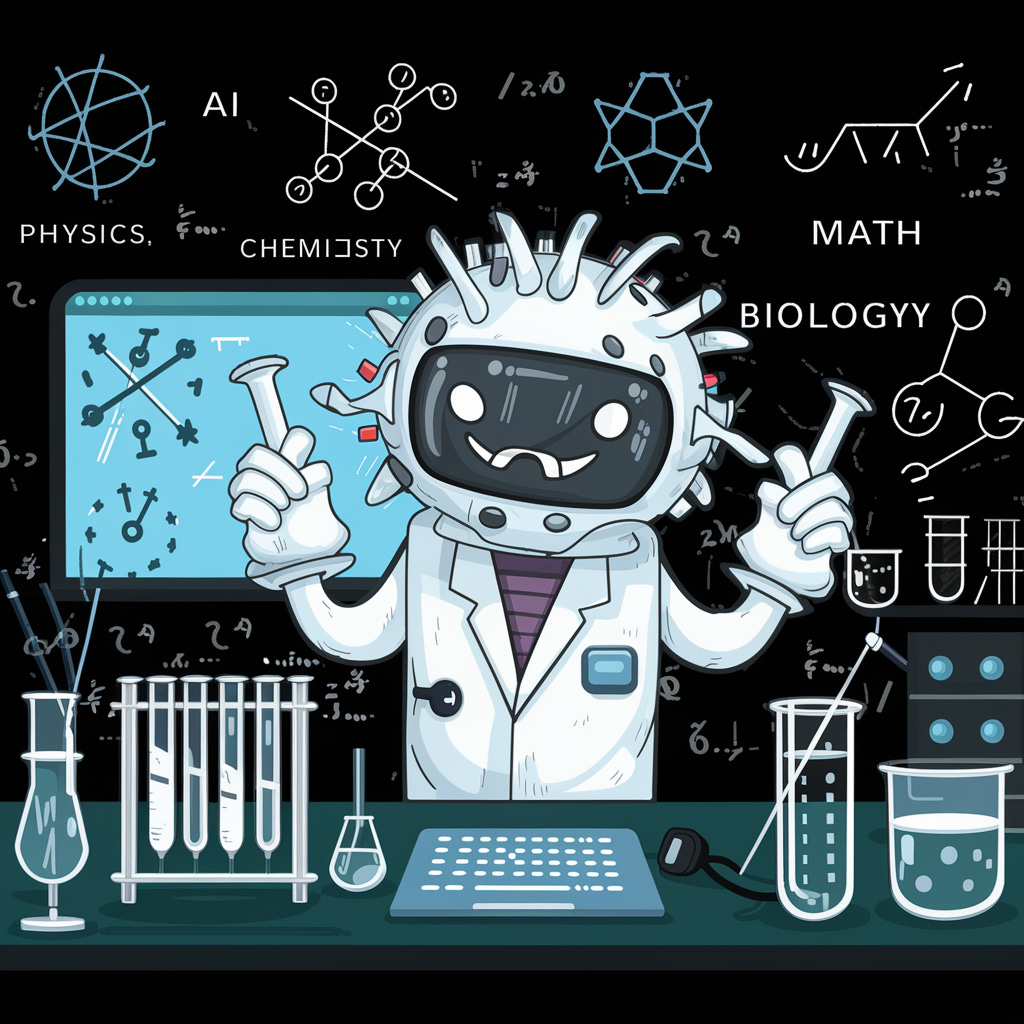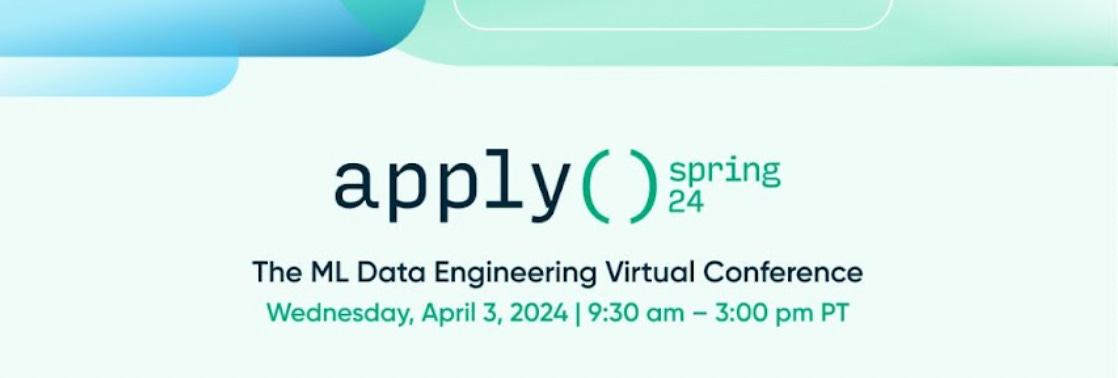TheSequence - Can I Solve Science?
Was this email forwarded to you? Sign up here Next Week in The Sequence:
You can Subscribe to The Sequence Below:📝 Editorial: Can AI Solve Science?Discovering new science is considered by many, including myself, as one of the ultimate tests of AGI (Artificial General Intelligence). We are witnessing glimpses of the potential impact of 'AI for science' with models such as those discovering new computer science and math algorithms, or the famous AlphaFold, which is actively used for discovering new proteins. Is AI going to discover everything? Can AI help explain the universe? What are the limits of AI when it comes to science? There are many theories about the possibilities of AI in scientific domains, but not a formal theory. Last week, computer scientist and physicist Stephen Wolfram published a long and detailed essay attempting to explain the potential and limits of AI in discovering new science. Wolfram’s theory relies heavily on one of his favorite theories: the principle of computational irreducibility. Wolfram introduced the idea of computational irreducibility in his 2002 book, 'A New Kind of Science'. This theory also relies on the idea that the universe can be modeled using formal computations. Some of these computations are reducible, which means they allow shortcuts to speed them up, while others do not allow for such flexibility and require executing all the computation steps. Science is possible because, even though many phenomena are computationally irreducible, they contain pockets of reducibility in which patterns can be inferred. What does this have to do with AI? Well, AI is a form of approximating predictions by inferring regularities in data. In that sense, AI can be applied to solve those pockets of reducibility, but what about the rest? Well, easily, the irreducible parts can be processed using a formal computation language like Wolfram Language (coincidentally 😉). In summary, Wolfram believes that AI can help advance most scientific workflows, but it will always be limited by the nature of computational irreducibility. In other words, this will prevent AI from autonomously solving science. However, combining AI with computational languages opens the doors to all sorts of possibilities when it comes to advancing science. Whether you agree with Wolfram's theory or not, you have to admit that it is certainly interesting. AI, by itself, cannot solve all science, but the combination of AI and computational languages could get pretty far. 📌 Exciting news! The speaker lineup for apply() 2024 is now live.Join industry leaders from LangChain, Meta, and Visa for insights to master AI and ML in production. Here’s a sneak peek of the agenda: LangChain Keynote: Hear from Lance Martin, an ML leader at LangChain, a leading orchestration framework for large language models (LLMs). Explore Semi-Supervised Learning: Aleksandr Timashov, ML Engineer at Meta, dives into practical approaches for training models with limited labeled data. Deep Dive into Uplift Modeling: Toyosi Bamidele, Data Scientist at Visa, demystifies uplift modeling for estimating marketing interventions' impact. Dive deep into these topics with our expert speakers and gain actionable insights for mastering AI and ML. Stay tuned for the full agenda! 🔎 ML ResearchStable Diffusion 3Stability AI published a paper outlining the technical details behind Stable Diffusion 3. The paper emphasizes on the rectified flow as a method to improve the mapping between noise and data which is essential to diffusion models —> Read more. YiThe team from 01.ai published a paper detailing thearchitecture behind the Yi family of models. Yi is based on 6B adn 34B pretrained models and that further fine-tuned for instruction and chat scenarios —> Read more. Chatbot ArenaAI researchers from the prestigious LMSys lab at UC Berkeley published a paper detailing the popular Chatbot Arena platform. Chatbot Arena is one of the most popular tools for evaluating and benchmarking foundaiton models —> Read more. Orca-MathMicrosoft Research published a technical report about Orca-Math, a version of Mistral 7B fine-tuned in mathematical problems. The mode achieved a remarkable 86.8% performance in the GSM8k dataset surpassing models such as LLAMA-270B and GPT-3.5 —> Read more. Human Level Forecasting with LLMsAI researchers from UC Berkeley published a study evaluating whether LLMs can forecast events at the level of human forecasters. The evaluation relies on a LLM-RAG system that can collect information, generate forecasts and aggregate predictions —> Read more. AtPGoogle DeepMind published a paper proposing Attribution Patching(AtP) a fast gradient descent method for causal attribution of behavior in LLMs. AtP is a form of activation patching which can identify the modes that lead to false positive predictions —> Read more. 🤖 Cool AI Tech ReleasesClaude 3Anthropic released the Claude 3 model family showcasing impressive performance —> Read more. Inflection 2.5Inflection AI unveiled the new version of its marquee foundation model which seems to achieve impressive performance across different benchmarks —> Read more. Einstein 1 StudioSalesforce released Einstein 1 Studio, a set of low-code tools for customizing Einstein CoPilot —>Read more. TripoSRStability AI released TripoSR, a model that can generate 3D objects from single images —> Read more. 🛠 Real World MLCan I Solve Science?Stephen Wolfram published a long and super insightful essay detailing the history, possibilities and challenges of AI when comes to discover new science. The essay builds on Wolfram;s ideas of computation reducibility and outlines a clear bou`ndary about the areas that “AI in science” is applicable and those in which it isn’t —> Read more. Python Upgrades at LyftThe Lyft engineering team discusses their processes for upgrading Python at scale —> Read more. 📡AI Radar
You’re on the free list for TheSequence Scope and TheSequence Chat. For the full experience, become a paying subscriber to TheSequence Edge. Trusted by thousands of subscribers from the leading AI labs and universities. |
Older messages
📌 ML Engineering Event: Lineup for apply() 2024 is Now Live!
Friday, March 8, 2024
Exciting news! The speaker lineup for apply() 2024 is now live. Join industry leaders from LangChain, Meta, and Visa for insights to master AI and ML in production. Here's a sneak peek of the
Edge 376: The Creators of Vicuna and Chatbot Arena Built SGLang for Super Fast LLM Inference
Thursday, March 7, 2024
Created by LMSys, the framework provides a tremendous optimizations to improve the inference times in LLMs by 5x. ͏ ͏ ͏ ͏ ͏ ͏ ͏ ͏ ͏ ͏ ͏ ͏ ͏ ͏ ͏ ͏ ͏ ͏ ͏ ͏ ͏ ͏
The Sequence Chat: Yohei Nakajima on Creating BabyAGI, Autonomous Agents and Investing in Generative AI
Wednesday, March 6, 2024
The creator of one of the most popular open source generative AI projects shares his views about AI tech, investing and the future. ͏ ͏ ͏ ͏ ͏ ͏ ͏ ͏ ͏ ͏ ͏ ͏ ͏ ͏ ͏ ͏ ͏ ͏
Edge 375: Meta's System 2 Attention is a Very Unique LLM Reasoning Method
Tuesday, March 5, 2024
The method has been inspired by cognitive psychology and has immediate impact in LLM reasoning. ͏ ͏ ͏ ͏ ͏ ͏ ͏ ͏ ͏ ͏ ͏ ͏ ͏ ͏ ͏ ͏ ͏ ͏ ͏ ͏ ͏ ͏ ͏ ͏ ͏ ͏ ͏
Text-to-Video Games and 1-Bit Models: Two Monumental Generative AI Research Milestones in One Week
Sunday, March 3, 2024
Two papers that open new possibilities for generative AI. ͏ ͏ ͏ ͏ ͏ ͏ ͏ ͏ ͏ ͏ ͏ ͏ ͏ ͏ ͏ ͏ ͏ ͏ ͏ ͏ ͏ ͏ ͏ ͏ ͏ ͏ ͏ ͏ ͏ ͏ ͏ ͏ ͏ ͏ ͏ ͏
You Might Also Like
Import AI 399: 1,000 samples to make a reasoning model; DeepSeek proliferation; Apple's self-driving car simulator
Friday, February 14, 2025
What came before the golem? ͏ ͏ ͏ ͏ ͏ ͏ ͏ ͏ ͏ ͏ ͏ ͏ ͏ ͏ ͏ ͏ ͏ ͏ ͏ ͏ ͏ ͏ ͏ ͏ ͏ ͏ ͏ ͏ ͏ ͏ ͏ ͏ ͏ ͏ ͏ ͏ ͏ ͏ ͏ ͏ ͏ ͏ ͏ ͏ ͏ ͏ ͏ ͏ ͏ ͏ ͏ ͏ ͏ ͏ ͏ ͏ ͏ ͏ ͏ ͏ ͏ ͏ ͏ ͏ ͏ ͏ ͏ ͏ ͏ ͏ ͏ ͏ ͏ ͏ ͏ ͏ ͏ ͏ ͏ ͏ ͏ ͏ ͏ ͏ ͏ ͏ ͏
Defining Your Paranoia Level: Navigating Change Without the Overkill
Friday, February 14, 2025
We've all been there: trying to learn something new, only to find our old habits holding us back. We discussed today how our gut feelings about solving problems can sometimes be our own worst enemy
5 ways AI can help with taxes 🪄
Friday, February 14, 2025
Remotely control an iPhone; 💸 50+ early Presidents' Day deals -- ZDNET ZDNET Tech Today - US February 10, 2025 5 ways AI can help you with your taxes (and what not to use it for) 5 ways AI can help
Recurring Automations + Secret Updates
Friday, February 14, 2025
Smarter automations, better templates, and hidden updates to explore 👀 ͏ ͏ ͏ ͏ ͏ ͏ ͏ ͏ ͏ ͏ ͏ ͏ ͏ ͏ ͏ ͏ ͏ ͏ ͏ ͏ ͏ ͏ ͏ ͏ ͏ ͏ ͏ ͏ ͏ ͏ ͏ ͏ ͏ ͏ ͏ ͏ ͏ ͏ ͏ ͏ ͏ ͏ ͏ ͏ ͏ ͏ ͏ ͏ ͏ ͏ ͏ ͏ ͏ ͏ ͏ ͏ ͏ ͏ ͏ ͏ ͏ ͏ ͏ ͏ ͏
The First Provable AI-Proof Game: Introducing Butterfly Wings 4
Friday, February 14, 2025
Top Tech Content sent at Noon! Boost Your Article on HackerNoon for $159.99! Read this email in your browser How are you, @newsletterest1? undefined The Market Today #01 Instagram (Meta) 714.52 -0.32%
GCP Newsletter #437
Friday, February 14, 2025
Welcome to issue #437 February 10th, 2025 News BigQuery Cloud Marketplace Official Blog Partners BigQuery datasets now available on Google Cloud Marketplace - Google Cloud Marketplace now offers
Charted | The 1%'s Share of U.S. Wealth Over Time (1989-2024) 💰
Friday, February 14, 2025
Discover how the share of US wealth held by the top 1% has evolved from 1989 to 2024 in this infographic. View Online | Subscribe | Download Our App Download our app to see thousands of new charts from
The Great Social Media Diaspora & Tapestry is here
Friday, February 14, 2025
Apple introduces new app called 'Apple Invites', The Iconfactory launches Tapestry, beyond the traditional portfolio, and more in this week's issue of Creativerly. Creativerly The Great
Daily Coding Problem: Problem #1689 [Medium]
Friday, February 14, 2025
Daily Coding Problem Good morning! Here's your coding interview problem for today. This problem was asked by Google. Given a linked list, sort it in O(n log n) time and constant space. For example,
📧 Stop Conflating CQRS and MediatR
Friday, February 14, 2025
Stop Conflating CQRS and MediatR Read on: my website / Read time: 4 minutes The .NET Weekly is brought to you by: Step right up to the Generative AI Use Cases Repository! See how MongoDB powers your



